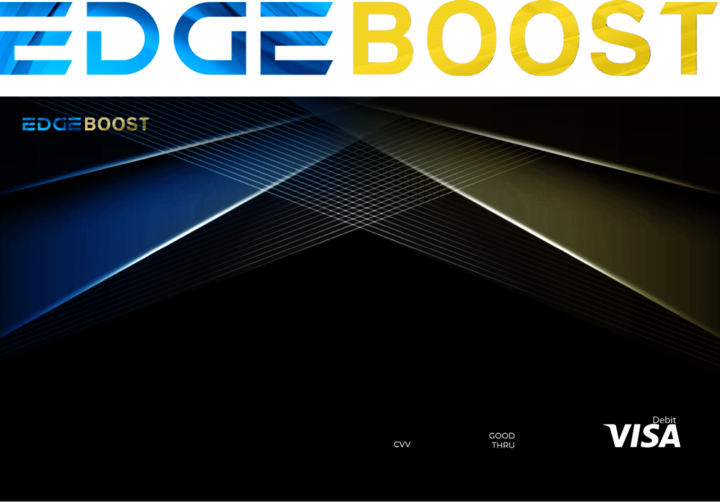A battle is bubbling up over prediction markets.
In +More: Georgia goes again, Texas courier ban reaction.
Oklahoma: Gov. Stitt issues a reminder of his position.
Star Entertainment executives fined and banned.
Unlock the power of real-time Ai facial recognition with Fincore’s TRI Biometrics:
Trigger any event instantly: such as blocking self-excluded players or welcoming VIPs.
Easy Integration: Works with almost any camera, including your current setup.
Actionable Insights: Use analytics to understand customer patterns and behaviour.
Trusted Accuracy: NIST-certified for reliable performance.
Tribes vs. Trump II
Fight, fight, fight: A heavyweight battle between gambling industry traditionalists and a new wave of prediction market juggernauts is taking shape over the legality of sports events contracts.
Influential industry figures are lobbying to outlaw prediction markets and sports events contracts, correspondence from the US Commodity Futures Trading Commission (CFTC) has revealed.
The agency is in the midst of a public engagement drive regarding its agenda and has published letters from stakeholders furious at how Kalshi, Crypto.com, Robinhood and Polymarket have emerged to upend the online sports-betting world.
Market makers such as Kalshi and Crypto.com offer binary futures contracts on the results of sporting events in all 50 states, which has been framed as an illegal dodging of state gambling laws.
In the blue corner: Around 10 individual Native American tribes, the Indian Gaming Association (IGA), state representatives, the American Gaming Association (AGA) and other parties such as location verification experts GeoComply have written to the CFTC to question the advance of sports events contracts.
“The legal gaming industry has serious concerns about prediction market sports event contracts and their broader implications,” the AGA said, adding that it had requested a seat at the CFTC’s upcoming roundtable on the topic.
GeoComply asked the agency to establish “a clear distinction between federally regulated financial products and state-regulated betting products.”
Future proof: The tribes want the CFTC, which oversees the platforms due to their classification as financial products rather than gambling, to ban sports futures trading outright.
“The IGA strongly urges the CFTC to make it clear that sports contracts are prohibited from being listed or made available for clearing or trading,” wrote the powerful Indian Gaming Association, which represents more than 100 tribes.
“Importantly, allowing sports contracts to be listed and traded will interfere with the sovereign right of tribes and states to exercise their police power to regulate gaming within their respective territories – a right long recognized by courts throughout the United States.”
In the red meat corner: A long legal scrap appears imminent as President Donald Trump, with his own history of fighting the tribes over casino rights, has asked Kalshi board member Brian Quintenz to lead the agency.
Quintenz is pro-crypto and his appointment swings the CFTC to Republican-majority rule.
He said he will not recuse himself from the prediction markets roundtable.
Trump’s son Donald Trump Jr. also serves as an advisor to Kalshi.
Lookin’ out my backdoor: Longtime Nevada Rep. Dina Titus took a swipe at Kalshi in her correspondence, arguing it unabashedly offers an unregulated form of gambling advertised as such on its own X account.
“Prediction contracts on sports create a backdoor way to legalize sports betting in states that have not authorized it,” Titus wrote.
Titus, who co-chairs the Congressional Gaming Caucus, said states that legalize sports betting have regulatory frameworks in place to protect consumers and guard against money laundering.
“Authorizing sports contracts nationally via prediction markets would not include any of these important policy considerations,” she said.
GuardDog, powered by Underdog, is a pioneering investment fund dedicated to fostering innovation in responsible gaming.
GuardDog supports and accelerates early-stage startups focused on building new and creative solutions to address problem gaming and further responsible gaming.
Ready to be one of the underdogs of responsible gaming?
Visit to apply: https://underdogfantasy.com/guarddog
+More
Not out of the blue: The analysts at EKG suggested the Texas Lottery Commission’s move to ban lottery couriers had been on the cards for some time and argued that it knocks 25% off the TAM for courier services. The report stated that the DraftKings-owned Jackpocket held a 60-70% share of the Texas courier market.
Another go around: Two sports-betting bills have been filed in Georgia. One would expand the Georgia Lottery’s purview to include regulated sports betting without the need for a constitutional amendment. The other bill would amend the state constitution to permit sports betting, though partnering enacting legislation with regulations has not yet been announced. Similar attempts were introduced last year but failed to progress out of the committee stage in the Senate.
Hawaii: The sports-betting bill is heading to the full state House after receiving approval from the House committee on finance. The bill proposes licensing a minimum of four sports-betting operators for a $250,000 fee while taxing revenue at a rate of 10%. The amended version of the bill hands the legislature the ability to increase both the tax rate and licensing fee.
The Philippines: Analysts at debt agency Moody’s suggested the removal of the Philippines from the Financial Action Task Force’s gray list is a significant step in improving the country’s anti-money laundering and counter-terrorism financing frameworks. The team argued the country needs to continue its crackdown on the online gaming and cryptocurrency sectors.
Stake has said it will provide players with promotional credits for deposits to offset the recently implemented value-added tax in Colombia. Players who make deposits on Stake’s Colombian platform will be reimbursed for the 19% tax. The proposal from President Gustavo Petro is now under judicial review.
Romania: The national gambling regulator has been accused by the country’s court of auditors of costing the country $1bn in tax revenue, The auditors claim the National Office for Gambling’s lack of remote access has resulted in tax collection errors. The auditor is considering a review by criminal prosecutors.
Senior Compliance Manager – Cyprus
Compliance & Legal Manager – Johannesburg, South Africa
KYC Analyst – Liverpool, UK
Stitt’s nudge
Don't you forget about me: Oklahoma Governor Kevin Stitt has said his year-old plan to bring sports betting to the state is still valid despite ongoing disagreements around rival proposals that favor the tribes.
On X, Stitt said: “If the Legislature is going to pass sports betting in Oklahoma, it needs to be a fair deal for everyone – not just the tribes. I rolled out a solid, fair plan over a year ago.”
The state legislature is debating a raft of legislation that would open the state for sports betting but is stuck on where the power should lie – with the open market or the tribes?
What does it all mean? Three different sports-betting bills were approved by the Oklahoma Senate’s Business and Insurance Committee earlier this month, but none has moved the needle.
Under one proposal, tribal casinos could offer in-person and mobile betting on their lands while handing the NBA’s Oklahoma City Thunder a license for online sports wagering off tribal land.
A second bill would hand the tribes total control of mobile and in-person sports betting, while a third leans more towards Stitt’s view of giving the Oklahoma Lottery Commission’s board of trustees power to negotiate agreements for sports wagering with “one or more other states or sovereigns.”
Making friends: Stitt’s bill, which first aired in November 2023, carries a mobile betting tax of 20% and a 15% rate on retail gambling. It would introduce an initial licensing fee of $500,000 and an annual fee of $100,000.
Having buried the existing bills by pushing his own, which angered the tribes, Stitt is unlikely to win any new supporters to his cause.
Previously, the Oklahoma Indian Gaming Association has said any sports-betting framework must fit with existing tribal-state gaming compacts and be economically viable for all parties.
It said it was not consulted on Stitt’s plan and that the proposals “invite failure.”
EDGE Boost is a dedicated bank account for bettors built to encourage Responsible Gambling. EDGE has found that financial segmentation and budgeting into a Gaming bank account is the easiest and lowest friction pathway to promote responsible behavior. As a neutral financial layer across all gaming activity, EDGE can offer: Universal Limits across all Gaming Spend, Holistic Reporting, Accountability (Weekly transaction reports to friends), Bankroll Cool Downs, and Income Verification. All this with no Operator costs or integration.
For more information, go to www.edgeboost.bet
Tarred and feathered
Gone out: Two former Star executives have been fined and banned from managing companies for breaches of duty. Australia’s Federal Court hit Star’s former chief financial officer, Harry Theodore, with a A$60,000 ($38k) penalty and barred him from managing corporations for nine months.
Star’s former chief casino officer, Gregory Hawkins, was fined A$180,000 and disqualified from managing corporations for 18 months.
False step: In a statement, the Australian Securities and Investments Commission said Theodore was found to have failed to prevent the casino group from sending correspondence to National Australia Bank that contained false representations about the use of China UnionPay cards for gambling at terminals in Star’s casino.
Among other allegations, Hawkins failed to recommend that Star's board review or end their relationship with Suncity, a former Macau junket operator whose CEO was arrested in 2021 following links to cross-border gambling and money laundering.
The trial of nine other former Star directors and officers is ongoing.
Events calendar
Mar 10-13: Regulating the Game, Sydney
Mar 12-13: Next: NYC 25, RG Hub, New York
May 8-9: Leaders in Compliance Conference, Frankfurt
Player Protection in New and Existing Markets Worldwide
Did you know? Mindway AI isn’t just a Danish company—it’s a global leader reshaping responsible gaming solutions across 62 jurisdictions around the world.
With solutions active in 38+ countries and available in 14 languages, Mindway AI transcends borders. We seamlessly adapt our expertise to diverse regulatory landscapes, meeting the unique needs and challenges of each area.
Learn more at mindway.ai
An +More Media publication.
For sponsorship inquiries email scott@andmore.media.











